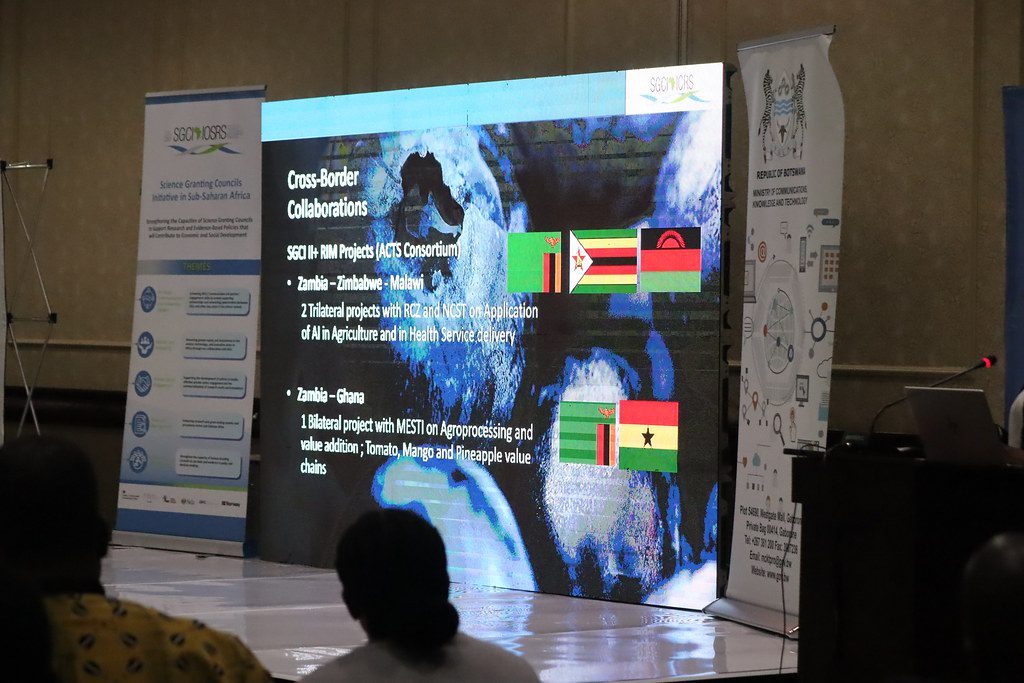SGCI News
[GABORONE] When Joel Mukwaya, a biologist and post-graduate student at Uganda’s Makerere University, discovered the immune-boosting benefits of tea made from a honey-by product, he immediately sent some to his…
Ugandan researchers develop health products based on bee resin.
Products offer higher income potential than honey for beekeepers.
The innovation could improve rural livelihoods and health outcomes.
[GABORONE] When Joel Mukwaya, a biologist and post-graduate student at Uganda’s Makerere University, discovered the immune-boosting benefits of tea made from a honey-by product, he immediately sent some to his grandmother.
The tea was made with propolis—a resin-like substance bees use when building their hives
“I know of propolis tea’s immune-boosting properties and appetite enhancement,” Mukwaya explains.
“The current farm gate crude price of propolis is US$4 per kg, meaning by not harvesting propolis beekeepers lose up to US$1.3 to 3.5 million annually in revenue.”
Deborah Ruth Amulen, lecturer, Department of Livestock and Industrial Resources, Makerere University, Uganda.
He says his grandmother’s appetite has improved tremendously and she’s able to fight off infections because of her enhanced immune system.
His family has also seen other benefits, for instance a relative with a diabetic foot found relief using propolis powder, he says.
“One of my family relatives also said the propolis powder is helping to heal his diabetic foot,” he adds.
These experiences are as a result of a project led by Deborah Ruth Amulen and her team at Makerere University’s Department of Livestock and Industrial Resources.

In 2019, Amulen and her team designed the country’s first propolis powder extraction facility that could unlock the commercial potential of propolis and boost beekeepers’ incomes, while providing natural health solutions.
Uganda has the capacity to produce between 325 and 870 tons of propolis annually, yet over 80 per cent of the country’s beekeepers focus solely on honey and beeswax, leaving the country to lose out on a potential annual revenue of US$1.3 to US$3.5 million.
“If all beekeepers are mobilised to collect propolis, the country can produce between 325 to 870 tons of propolis annually,” researchers said in a policy brief.
“The current farm gate crude price of propolis is US$4 per kg, meaning by not harvesting propolis beekeepers lose up to US$1.3 to 3.5 million annually in revenue,” they added.
Since 2019, the team has worked to extract value from propolis, a resin-like material collected by bees from plants. The propolis has long been used in traditional medicine to treat cough and wounds due to its claimed antioxidant and antibacterial properties.
Funded by the Science Granting Councils Initiative (SGCI) and the Uganda National Council of Science and Technology, the team developed a four-stage process to extract propolis powder that includes cleaning, crushing, solvent soaking, and drying.
The resulting powder is then used to create high-value products like infused teas, sweets, wound care ointments, and cosmetics.
“We came up with propolis-infused tea bags, wound care ointments, toothpaste, smearing oils, sweets for children to avoid tooth decay, and even supplement tablets,” Amulen said.
“Having seen the success of the product development, we developed a policy brief and started the process of commercialising the propolis-infused tea and powder in Uganda,” Amulen said.
“Our goal is to help communities realise this potential by creating products with real market value,” she added.
Amulen presented her research at the SGCI Annual Forum held in Gaborone, Botswana, on 13 November.
Hurdles
Amulen said the road to commercialization has not been without hurdles.
She said limited access to affordable equipment for extracting propolis made it difficult for small-scale producers to adopt the innovation.
“We discovered that only small laboratory-based equipment was available and very expensive,” says Amulen.
With SGCI funding, the team designed and fabricated four critical pieces of equipment tailored for low-income regions.
“SGCI supported our team in designing and fabricating machine prototypes … suitable for low-income regions like Uganda and other African countries,” she says.
Two of the four required machines have been completed, but the researchers are seeking partnerships to design the remaining equipment.
Amulen says her team encountered other challenges including securing intellectual property rights and navigating regulatory requirements.
Early delays in registering trademarks and patents led to the theft of logos and product designs, but Amulen’s team has since trademarked and copyrighted most of their items.
“This is a lesson our team learned. We have now trademarked most of our items.”
The team is also working with the Uganda National Bureau of Standards and the National Drug Authority to secure clearance to market their products as natural medicines.
Amulen’s vision extends beyond Uganda.
“Our wish is for these innovations to be replicated all over Africa so that African propolis powder would be in the bee products marketplace as one of the natural solutions to human and animal health,” she says.
Related News
How Zambia’s science council is funding research that matters
When Zambia’s National Science and Technology Council (NSTC) was established in 1997, its founding vision was to harness science, technology, and innovation to improve the lives of ordinary Zambians. More than two decades later, that vision is increasingly taking shape through a growing portfolio of…
Voices of SGCI: Council leaders on the direction and ambition of SGCI 3
At the African Union’s Science, Technology and Innovation Week in Addis Ababa, earlier this month, leaders of science granting councils reflected on what SGCI Phase 3 represents for Africa’s science and innovation systems. From ownership and alignment to stewardship and sustainability, here are their voices…
Building Africa’s science future: inside the SGCI alliance
As Phase 3 of the Science Granting Councils Initiative launches on the margins of the African Union Summit in Addis Ababa last week, the SGCI Alliance Chair explains why this moment marks a decisive turning point for African science. Cephas Adjei Mensah describes what is…
SGCI funded projects
Rwanda’s integrated approach to sustainable agriculture and nutrition
Project Titles & Institution Areas of Research Number of Projects being funded Project Duration Grant Amount In-Kind Distribution Council Collaboration with other councils





